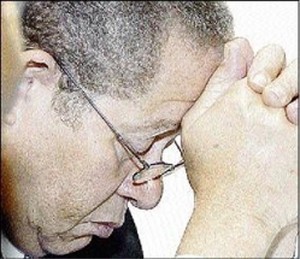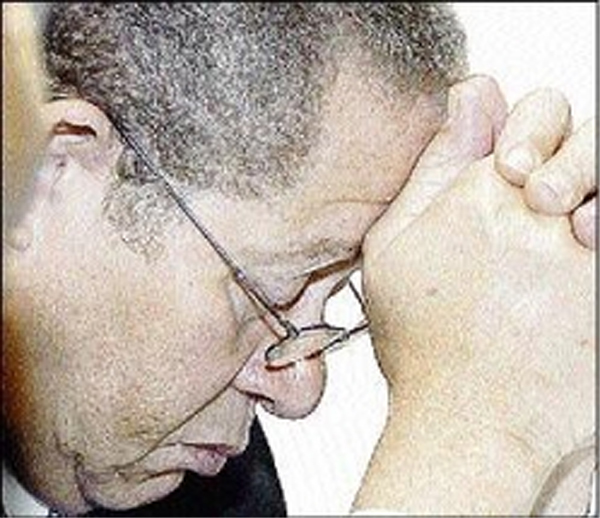(Jamaica Observer) – Prime Minister Bruce Golding last night announced a public sector wage freeze “at the levels which obtained on March 31”, and in an obvious effort to make the decision more palatable, said that he will be taking a 15 per cent salary cut this year in addition to foregoing the seven per cent increase which would have been due to him effective April 1.

In addition, members of parliament have been asked to take a 10 per cent cut in their salaries.
These were just some of the ‘tough choices’ the Jamaica Labour Party-led government said it has had to make in grappling to keep the lid on public spending and the ballooning wage bill which last fiscal year stood at $110 billion and accounted for one of the largest areas of government expenditure.
Making the disclosure during an address to the nation on Sunday, Golding said those in the lead “will have to lead by example”.
Golding indicated that urgent attention would be paid to tax reform. “There are some people who are paying too much tax and others who are paying too little or getting away without paying,” he said. “We have spent a long time studying and analysing… The time has come when we must do what we have long needed to do to make our tax system just and equitable and one that helps to stimulate rather than stifle investment, production and job creation.”
The prime minister said the alternative to the wage freeze would have been “to lay off thousands of workers at a time when alternative employment is hard to find”. The government has maintained since the start of the year that unpopular decisions will be made in the upcoming budget which is to be unveiled today when Finance and Planning Minister Audley Shaw tables the 2009/10 Estimates of Expenditure.
The prime minister further indicated that there would also be cuts on expenditure to improve infrastructure.
“The people of Jamaica are entitled to better roads and water supplies, but we are not going to be able to spend as much as we would like on these projects…,” Golding said.
He, however, noted that there are some areas in which the administration would not be able to cut back.
“We can’t cut back what we are spending to fight crime, educate our children, provide health care and assist the pensioners and the very poor,” the prime minister said. “These are vital services on which, even in these hard times, we have to spend more, not less. So deeper cuts have to be made in other areas, we have no choice.”
And government agencies are to come under increased scrutiny. Golding last week charged permanent secretaries and heads of government departments to “set about reducing expenditure”.

